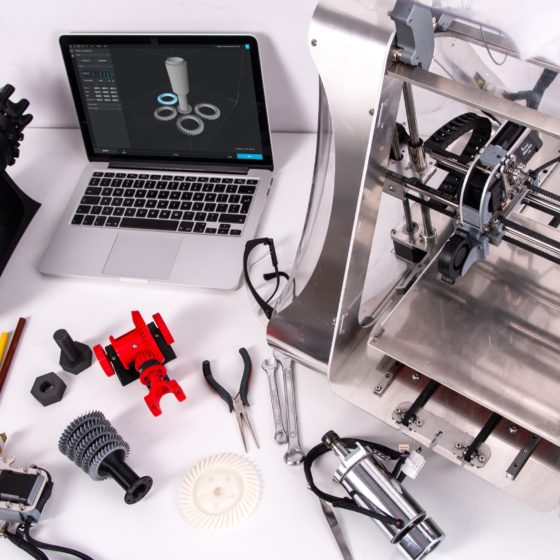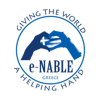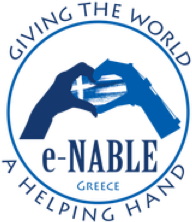STEM: redefining teaching in the classroom

Course Summary
The STEM acronym stands for science, technology, engineering, and mathematics and STEM education is a course for students to explore science, technology, engineering and math all in one curriculum. This course is intended to integrate the STEM fields through project based learning.
The course intends to educate participants in the STEM methodology and to create activities based on it. The holistic approach of the four disciplines integrated with STEM is the most modern educational practice, which is based on teamwork and the development of analytical thinking to solve complex combinatorial problems.
In order to delve into the STEM methodology, the program analyzes the use of Information and Communication Technologies (ICT) in education and introduces modern technologies such as 3D printing, Arduino electronics, as well as state-of-the-art programming, design and simulation training software.
The program material is enriched with texts, videotaped laboratory exercises, online resources and tools as well as to guide participants teachers in creating STEM courses designed by them according to the needs of the school and their students. So, participants on the one hand will be able to understand the modern needs of the students and on the other hand will be able to use modern electronic learning environments and new technologies in teaching, creating upgraded training programs.
Target Group
This course is for teachers, teaching assistants, supply teachers, newly qualified teachers, trainee teachers and others involved in the education of young people at primary, secondary or further education (ages 5-19 years) and other professional interested in education, learning and volunteering.

Course in Athens
Objectives
– Link activities: Learn how to link activities to the STEM program and other frameworks.
– Learning the Fundamentals of STEM (Science, Technology, Engineering and Mathematics)
– Immerse educators in a practical and open exploration.
– Enhance teachers’ attitudes to STEM fields and careers;
– Develop knowledge of STEAM and innovations.
– A clearer understanding of the links between formal and non-formal education;
– Improve the ability to find and use a variety of teaching and learning resources;
– Enhance participants’ ability to design the STEAM program and put it into practice.
– Improve teachers’ communication and social competencies.
– Participant’s linguistic competence in English improvement
– Demonstrate its appropriateness for Project-Based Learning (PBL) implementation.
Methodology
Project Based Learning: Teachers will be in groups and working together independently of their expertise. Each team will design and implement a simple STEM lesson for their classroom.
Demonstration: The background material, parts and configuration of a STEM lesson will be explained to participants.
Learning by doing: Participants will actively participate in designing, organizing and implementing a STEM lesson, trying to cover objectives related to their characteristics and needs.
Formative assessment: During the course, the trainers will assess the trainees’ level and adjust the course content according to the trainees’ individual needs.
Course Fees:
560 euros for a 7-day course: includes registration and course fees, course educational material, administration and organizational fees, Athens center guided tour, Certificate of Attendance and Europass certification (upon request).
Sessions
Check our Erasmus Courses Social Media
Preparation
Trainees will receive a questionnaire, which will provide information on their teaching subject, teaching background, qualifications, and any previous experience with STEM methodology. Furthermore, trainees will receive a simple guide about “What is the STEM?”
Follow up
Trainees will be supported by the e-Nable Greece Erasmus+ trainees Facebook Group. The group is full of instructions, photos and videos of how to design organize and implement STEM lessons to expand the acquired knowledge and skills and keep them up to date. Group administrators will instantly answer questions or issues from participants.
In addition, trainees will be provided the educational material of the course in copies and in digital files. These documents can be used by students to present them to their own organization to expand STEM classroom courses.
Learning outcomes
– Improved abilities to use innovative and project based pedagogical approaches using STEM methodology in the classroom
– Develop the learning autonomy of the participants by means of a self-directed and practical learning approach.
– Develop the knowledge of previous participants.
– Use questioning as a tool for learning.
– Helping students to make “real” their idea (think – design – print)
– Improved skills about using a 3d printer in the classroom
– Reinforced professional profile.
– Increased capacity to cooperate on international level
– Internationalization of the sending organizations. Opportunity for future cooperation (job shadowing/partnerships)
– Enhancement of participants’ linguistic skills.
– Raising awareness for the value of volunteerism
– Encouragement of using STEM lesson especially design for students facing any kind of exclusion due their sex, origin or.

